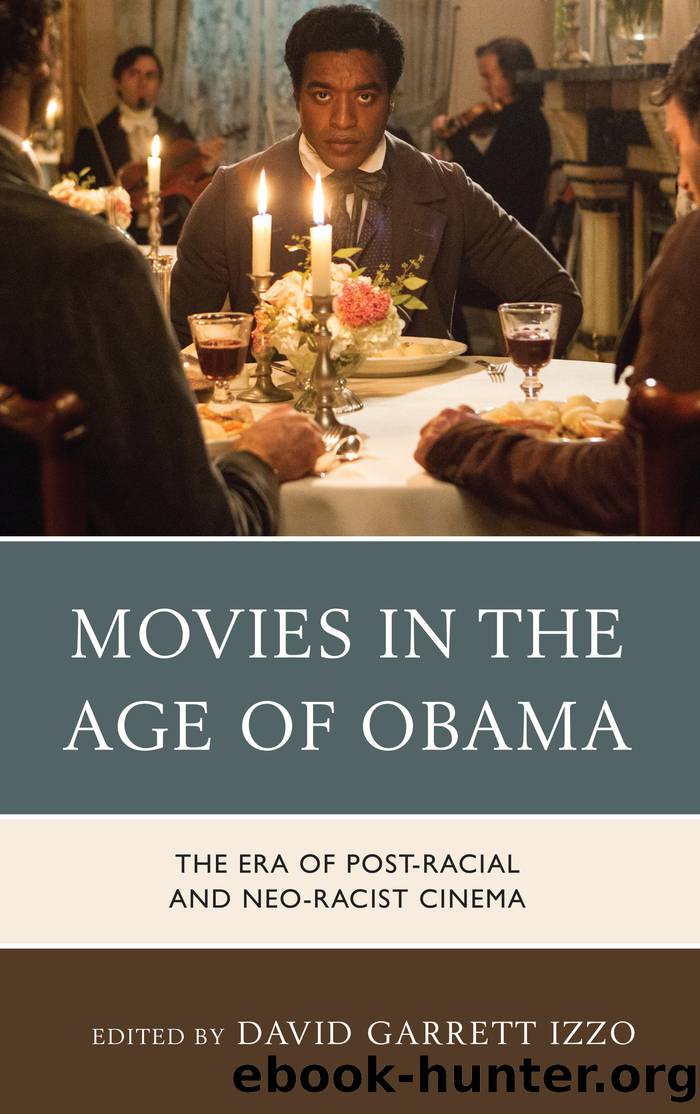Movies in the Age of Obama by unknow

Author:unknow
Language: eng
Format: epub
Tags: undefined
Publisher: Rowman & Littlefield Publishers
Published: 2012-08-15T00:00:00+00:00
Then, once again, we have the link with the terrorist attacks of 2001:
And itâs greed that makes the government of this country cut the interest rates to 1 percent after 9/11âso we could all go shopping again.
Here, Americans of all classes are implicated in a crassly consumerist distortion of the American Dream. But, via Gekko, Stone tells us that the principal threat to that dream remains Wall Street. Though not as (mis)quotable as âgreed is good,â Gekkoâs new message is that âthe mother of all evil is speculation.â In a dialogue with the fiancé, Gekko warns that high-risk speculation in pursuit of short-term profits now constitutes a genuine threat of financial apocalypse, and that there are no longer the necessary regulations or institutions in place to prevent it. As Gekko puts it, âNobody knows what to do next except repeat the insanity until the next bubble blows. Thatâll be the oneâthe big one.â
Stoneâs perspective, like Michael Mooreâs, is moral: Gekko remains duplicitous, old-school bankers kill themselves, and LaBeoufâs halfway sympathetic character is guilty of serial deceit. This film has the cultural argument of Inside Job, but, unlike the original Wall Street, it is superficial in its treatment of the inner workings of the financial world.
Not so Margin Call (2011), probably the best film ever made about Wall Street. Written and directed by J. C. Chandor, the film is set in the offices of a Manhattan investment bank during a twenty-four-hour period in which financial analysts realize that their firm is overleveraged and laden with toxic assets. The quality of both the script and the performances are such that even reluctant viewers will find themselves acquiring at least some understanding of how the structural dynamics of the financial system, and the workplace psychological pressures they produce, could induce in brilliant people a collective myopia, or even delusion, that would take their firm to the brink of destruction.
The film does not expect us to like its characters. Those who insist on finding a hero will settle on the risk analyst Peter Sullivan, played by Zachary Quinto. Sullivan is a perfect specimen of the problem identified by Andrew Sheng in Inside Job: an engineering Ph.D. who moved to financial modeling as a massively more lucrative career. It is Sullivan who discovers the potentially fatal extent of the overleveraging of the firm. Over the course of the film, we watch as the various players come to realize the magnitude of the problem. What alarms us is that they are as incredulous as we are. Gordon Gekkoâs apocalyptic warning suddenly seems more credible.
Once the problem has been discovered, blame has to be allocated, and the firm has to be extricated from the catastrophic position into which it has put itself. There is much finger-pointing before the ruthless scapegoating. But the crisis is so deep that CEO John Tuld (Jeremy Irons) has to descend ominously from the sky by helicopter in the middle of the night. What Tuld brings to the situation is not intelligence or insight, but ruthlessness.
Download
This site does not store any files on its server. We only index and link to content provided by other sites. Please contact the content providers to delete copyright contents if any and email us, we'll remove relevant links or contents immediately.
The Kite Runner by Khaled Hosseini(5178)
Gerald's Game by Stephen King(4654)
Dialogue by Robert McKee(4401)
The Perils of Being Moderately Famous by Soha Ali Khan(4220)
The 101 Dalmatians by Dodie Smith(3511)
Story: Substance, Structure, Style and the Principles of Screenwriting by Robert McKee(3468)
The Pixar Touch by David A. Price(3438)
Confessions of a Video Vixen by Karrine Steffans(3308)
How Music Works by David Byrne(3268)
Harry Potter 4 - Harry Potter and The Goblet of Fire by J.K.Rowling(3073)
Fantastic Beasts: The Crimes of Grindelwald by J. K. Rowling(3058)
Slugfest by Reed Tucker(3002)
The Mental Game of Writing: How to Overcome Obstacles, Stay Creative and Productive, and Free Your Mind for Success by James Scott Bell(2908)
4 - Harry Potter and the Goblet of Fire by J.K. Rowling(2702)
Screenplay: The Foundations of Screenwriting by Syd Field(2642)
The Complete H. P. Lovecraft Reader by H.P. Lovecraft(2562)
Scandals of Classic Hollywood: Sex, Deviance, and Drama from the Golden Age of American Cinema by Anne Helen Petersen(2524)
Wildflower by Drew Barrymore(2488)
Robin by Dave Itzkoff(2440)
